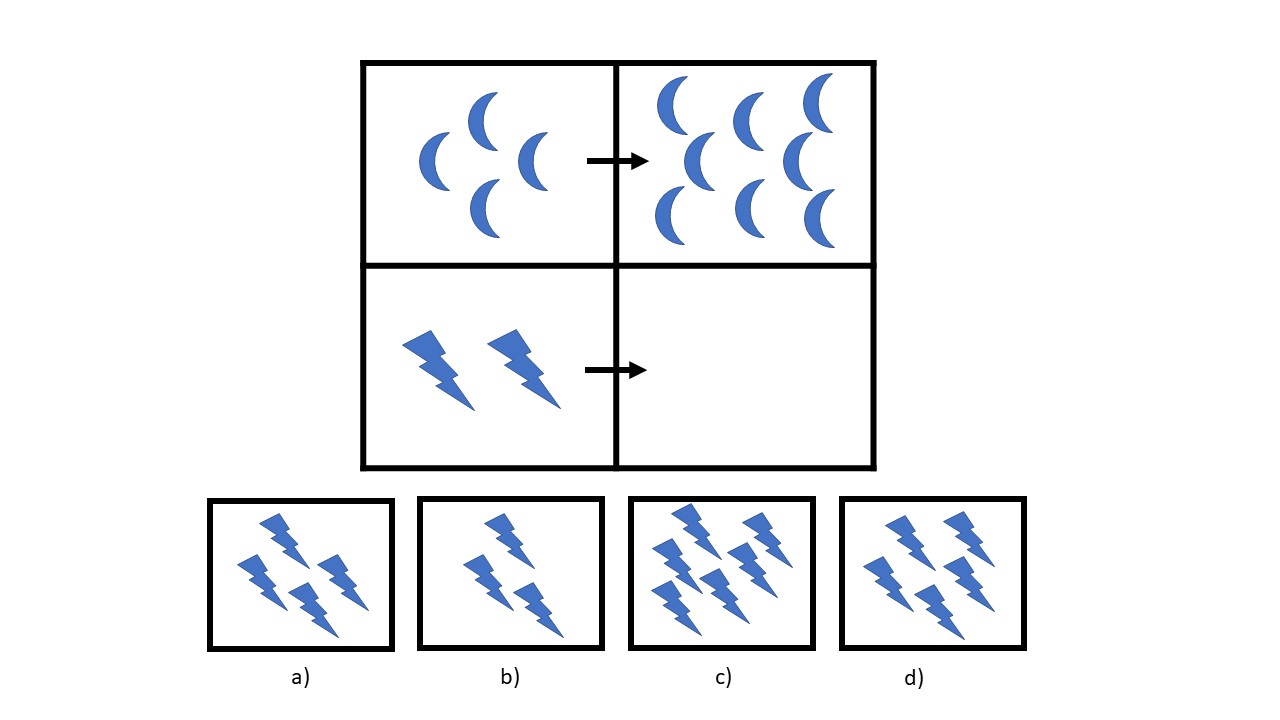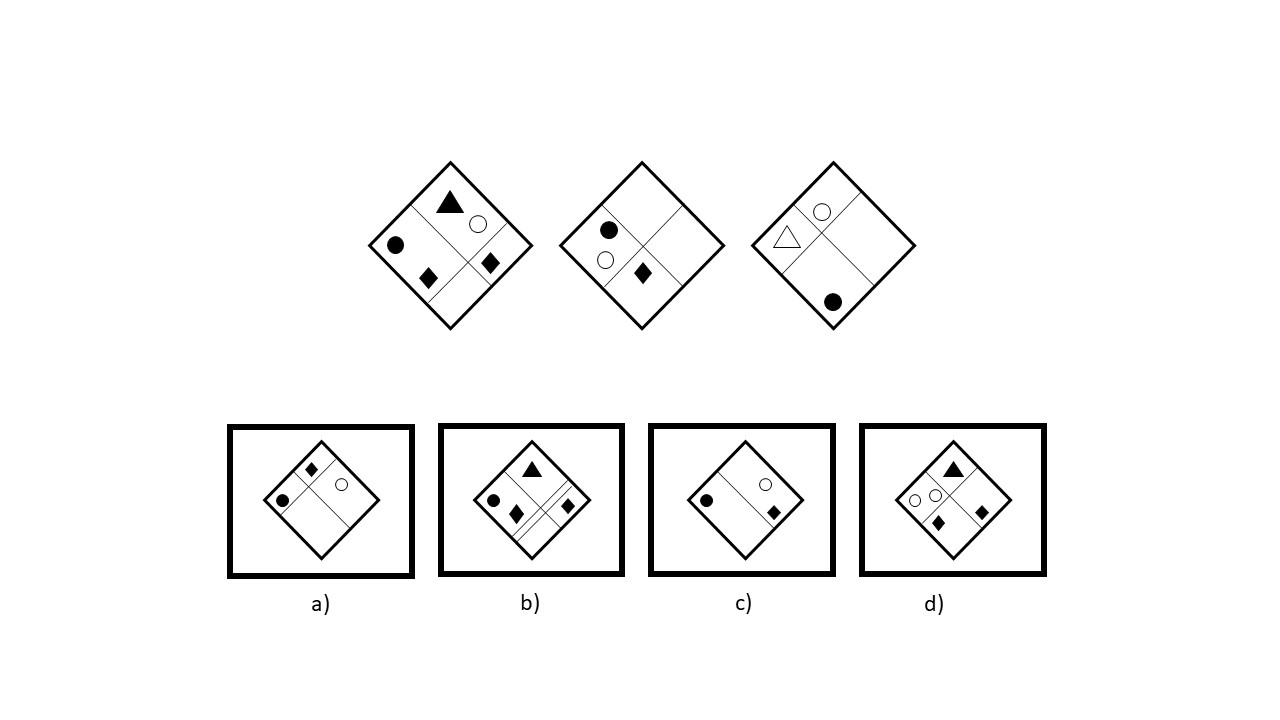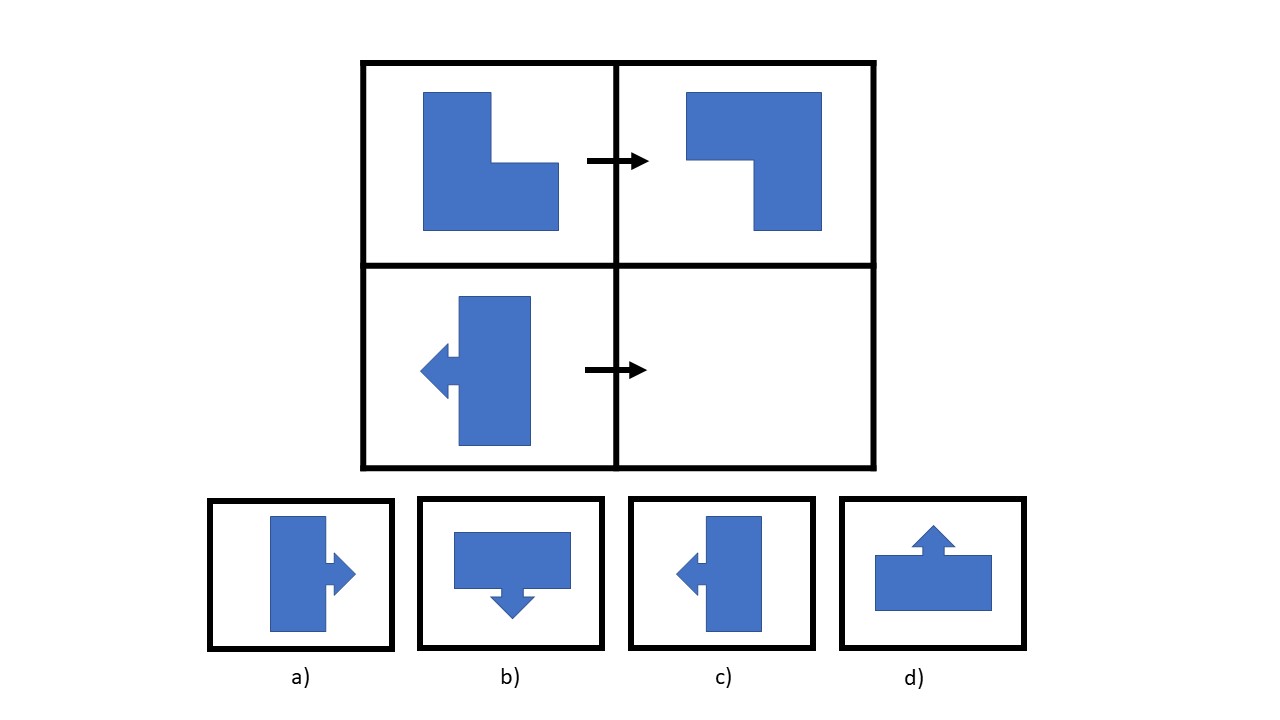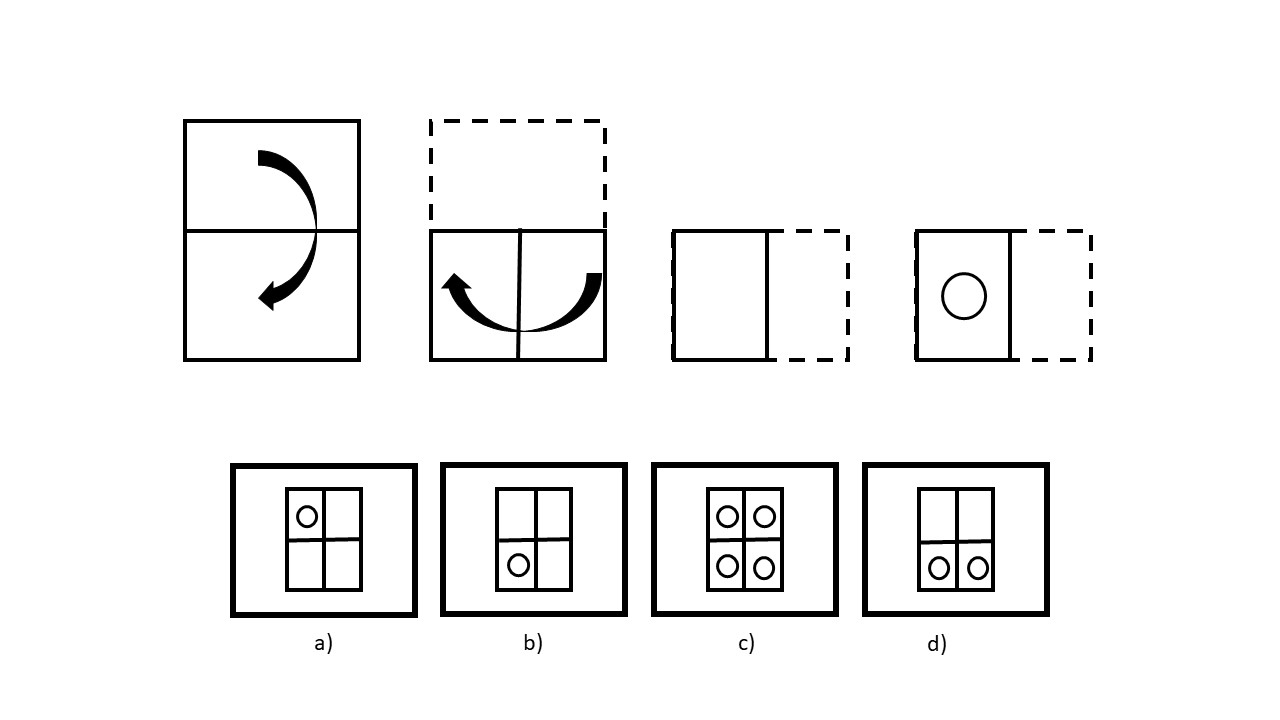Cognitive Abilities Test (CogAT) – 2026 Guide
All products and services featured are independently selected by WikiJob. When you register or purchase through links on this page, we may earn a commission.
- What Is the CogAT Test?
- CogAT Test Levels in Detail
empty
empty
empty
empty
empty
empty
empty
- What Is Assessed in the CogAT?
- CogAT Question Formats and Types
empty
empty
empty
- What to Expect When Taking the CogAT in 2025
- CogAT Prep: How to Do Well
- Final Thoughts
What Is the CogAT Test?
The Cognitive Abilities Test, known as CogAT, is widely used by schools across the United States to assess children from Grades K to 12.
The test measures a child’s reasoning ability against others in the same age group and grade and is often used as an entrance exam to a school’s gifted program. It may also help determine how teachers approach learning and teaching strategies.
There are 14 CogAT levels, each designed to suit the age and grade of the child taking the test, with the type of question and length of test adjusted accordingly.
The number given to the level roughly corresponds to the age of the students it is designed for, so level 8 is usually administered to eight-year-olds and so on.
| Grade | Test Level | Number of Questions | Length of Test (minutes) |
|---|---|---|---|
| Kindergarten (K) | 5/6 | 118 | 112 |
| 1st | 7 | 136 | 112 |
| 2nd | 8 | 154 | 122 |
| 3rd | 9 | 170 | 90 |
| 4th | 10 | 176 | 90 |
| 5th | 11 | 176 | 90 |
| 6th | 12 | 176 | 90 |
| 7th/8th | 13/14 | 176 | 90 |
| 9th/10th | 15/16 | 176 | 90 |
| 11th/12th | 17/18 | 176 | 90 |
CogAT Test Levels in Detail
CogAT Level 5-6
This is the test administered at kindergarten level, with 118 questions to be answered in 112 minutes.
Practice CogAT Level 5-6 with Test Prep Online
CogAT Level 7
Aimed to assess the talents of children in Grade 1 (aged 7), the CogAT Level 7 has 136 age-appropriate, challenging questions to be answered in 112 minutes.
Practice CogAT Level 7 with Test Prep Online
CogAT Level 8
Grade 2 students are around eight years old, and this CogAT assessment has specific questions for this age group. 154 questions in total need to be answered in 122 minutes.
Practice CogAT Level 8 with Test Prep Online
CogAT Level 9
For those aged nine and in Grade 3, 170 questions need to be answered in just 90 minutes.
Practice CogAT Level 9 with Test Prep Online
If you want 12-month access to all the practice resources for this test, our partner TestPrep-Online.com offers a Family Membership.
Family Membership gives you access to all the TestPrep-Online resources for the next 12 months. You will also get two separate accounts, which can be very helpful if you have two children preparing for their tests.
Get a Family Membership with 12-month access
CogAT Level 10
10-year-old students in Grade 4 must answer 176 questions in 90 minutes.
Practice CogAT Level 10 with Test Prep Online
CogAT Level 11
At this level, the number of questions is the same as for Level 10, but the difficulty increases to be suitable for children aged 11 or in Grade 5.
Practice CogAT Level 11 with Test Prep Online
CogAT Level 12
Administered to Grade 6 children, 176 challenging questions need to be answered in 90 minutes, with questions aimed at students aged 12.
Practice CogAT Level 12 with Test Prep Online
What Is Assessed in the CogAT?
The CogAT assesses three separate areas of cognitive ability
- Verbal
- Quantitative
- Non-verbal
Unlike attainment tests such as SATS, the CogAT does not assess knowledge or measure how much has been learned at a certain stage.
Instead, it requires students to use cognitive skills, such as reasoning and problem-solving, to work out the answer.
This helps to give a more thorough understanding of a student’s academic aptitude.
The CogAT results are used to compare students with others in their cohort and also to help identify particular strengths and weaknesses and how these can be supported or developed.
As mentioned above, teachers and other school staff often use the CogAT to determine which children are eligible to join a program for gifted children.
The predictive data can also highlight discrepancies between a student’s progress and their expected academic achievement.

CogAT Question Formats and Types
The CogAT is delivered in three different sections, known as batteries, each is focused on a different cognitive area and consists of three different types of questions:
CogAT Verbal Battery
1. CogAT Picture/Verbal Analogies
Students must identify how two concepts are related. These concepts may be represented by images or words depending on the age level of the test.
There are 14 questions in this section and it takes around 15 minutes to complete.
CogAT Sample Questions
Calf is to cow as foal is to ____.
a) sheep
b) horse
c) pig
d) goat
2. CogAT Sentence Completion
Students complete a sentence that is either read to them or they read themselves, picking from a selection of possible answers to fill in the blanks.
There are 14 questions in this section and it takes around 14 minutes.
CogAT Sample Questions
Sarah joined the choir because she enjoyed _____.
a) running
b) reading
c) singing
d) swimming
3. CogAT Picture/Verbal Classification
Students are given three words or images that are alike in some way. They must then select one more word or image that goes with them in the same way.
This section is made up of 14 questions and takes around 14 minutes.
CogAT Sample Questions
The three words in bold are alike in some way. Choose one more word from the list below that goes with the words at the top.
Saxophone Trombone Trumpet
a) Guitar
b) Violin
c) Clarinet
d) Cello
e) Piano
CogAT Quantitative Battery
1. CogAT Number Analogies
Students must work out the relationship between two mathematical concepts. They then use this model to select an answer that is related to a third given concept in the same way.
There are 14 questions in this section and it takes around 13 minutes.
CogAT Sample Questions

2. CogAT Number Series
Students must complete a series of numbers by finding the underlying pattern.
This section comprises 14 questions and takes around 10 minutes.
CogAT Sample Questions
Which number comes next in this sequence?
2, 5, 8, 11, 14, 17
a) 19
b) 20
c) 23
d) 26
e) 31
3. CogAT Number Puzzles
The student will be given a mathematical equation or puzzle and must choose the answer that replaces a ? or symbol.
This section has 10 questions and takes around 10 minutes to complete.
CogAT Sample Questions
10 + 2 = 3 x ?
a) 3
b) 4
c) 6
d) 8
CogAT Non-Verbal Battery
1. CogAT Figure Classification
Students must find the relationship between three figures and then select a fourth figure that goes with them in the same way.
This section includes 14 questions and takes around 10 minutes.
CogAT Sample Questions

2. CogAT Figure Matrices
Students are presented with three figures in a 2x2 box. They must find the relationship between the images in the two top boxes before selecting a fourth figure that goes with the third figure in the same way.
This section has 14 questions and takes around 10 minutes.
CogAT Sample Questions

3. CogAT Paper Folding
The student is shown images of a piece of paper that is folded and then hole-punched. They must determine what the final piece of paper will look like once it is unfolded.
This section has 10 questions and takes around 10 minutes.
CogAT Sample Questions

What to Expect When Taking the CogAT in 2025
The CogAT is a multiple-choice test and can either be taken online or on paper. It may be administered individually or in groups.
Students tend to take all three batteries together but schools can choose only to administer certain batteries or to set them separately. Children will usually have about 30 to 45 minutes to complete each battery.
As mentioned earlier, there are different levels of CogAT so the test your child sits will depend on their age and grade. There are also different versions of the test, known as ‘forms’, which have been released as the test is updated and modified. The most recent is Form 8.
It is important to check which form your child will be taking so they can prepare accordingly.
CogAT Prep: How to Do Well
The CogAT assesses cognitive ability and reasoning skills, so students cannot study for it as they would for other types of tests.
However, the following tips should help your child to feel as prepared as possible:
Step 1. Know What to Expect
Different schools may administer different versions of the test, or use different testing methods, so it is important to contact your child’s school to clarify.
You should ask:
- Whether the test will be taken online or on paper
- Which form and level your child will be taking
- Whether they will take all three batteries together
Step 2. Familiarize Your Child With CogAT Questions
Your child will feel much more confident if they have prior experience of the types of questions they will encounter in the CogAT and know how to approach them.
Websites such as Test Prep Online and Testing Mom have a range of sample questions for all levels.
When practicing with your child, try to follow your school’s procedure as closely as possible.
Remember to take breaks when your child needs them, ideally between each of the three batteries.
Step 3. Make It Fun
As well as trying practice questions, you can help to develop the cognitive skills assessed in the CogAT by introducing games and activities into your child’s everyday routine.
Look for educational games that focus on similar areas to the CogAT, such as reasoning, classification and number puzzles.
You may also find opportunities to put these skills into practice through day-to-day activities such as baking or playing with toys.
Reading with your child is also hugely valuable in developing listening and comprehension skills and exposing your child to new vocabulary and concepts – all of which will support your child in performing their best in the CogAT.
Final Thoughts
All parents want their children to excel, and scoring highly on the CogAT can be an important first step in opening doors to opportunities such as a place on a gifted program.
The test may seem daunting for those who have not tried these kinds of questions before, but with practice, your child will learn how to apply their reasoning and logic with ease.
Proper rest, nutrition and exercise are also vital when it comes to performing well in any test, and it is always important not to place undue pressure on your child.
By keeping practice sessions fun and focused, your child should feel calm, confident and ready to do their very best in the CogAT.



